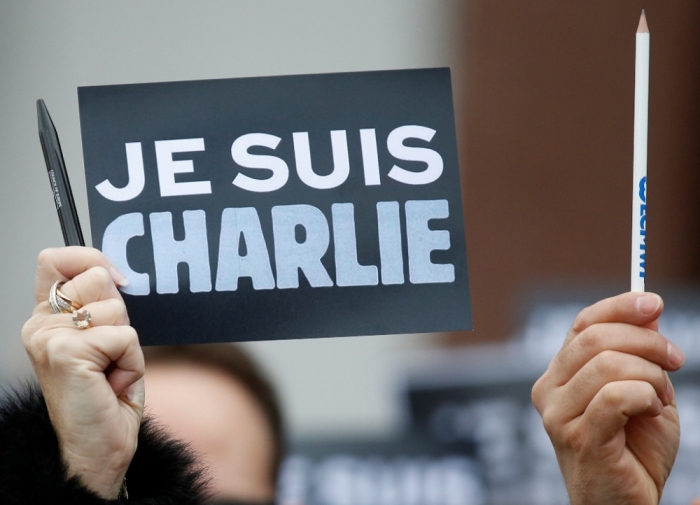Theologian James Emery White Asks: 'Are You Charlie?' Will Americans Stand Up for Fired Christian Fire Chief Kelvin Cochran

Theologian James Emery White questions whether many in America who so easily embraced the global outrage in the defense of freedom of expression as the result of the murderous attacks on the staff of Charlie Hebdo would be as quick to defend the rights of others to express moral standards different than their own.
In his blog post, "Are You Charlie?" White quotes Brian Pellot who reflected: "I do not consider myself racist, homophobic, Islamophobic or misogynistic. 'Being Charlie' doesn't mean being any of these things, despite what you think about the magazine's tact and tone. … As advocates for freedom of expression we must sometimes defend views we find repulsive. This doesn't require us to endorse them. In this case, we must protect what gunmen tried to kill, a satirical magazine some deem offensive. #JeSuisCharlie simply means, 'I defend freedom of expression.'"
White then responds: "Yes. But it's easy to side with such a sentiment when it comes to the exercise of free press in the face of senseless terrorism which seeks to silence it. It's not so easy when it comes to allowing people to live by convictional standards that seemingly draw into question your own."
As one example, he points out that Kelvin Cochran was recently suspended for 30 days and then fired "following complaints that he promoted anti-gay views in a 2013 self-published Christian book." White states that Cochran was a 34-year veteran including serving as the presidentially-appointed U.S. fire administrator in 2009. "His book simply stated his belief that sex was designed by God for a man and a woman."
Residents in Georgia say the firing violates his First Amendment rights to freedom of speech and belief, and are calling on the city to reinstate Cochran.
White asks, "Are we going to 'be Charlie' to him?"
"To say 'je suis Charlie' is to say that all voices are meant to be free, regardless of what that voice might say," he wrote. "Charlie Hebdo, after all, was not a tame publication. It took on religion in all its forms, not just Islam, and was equally mocking of it all.
"But this is more than religion being open to satire. To say 'je suis Charlie' is to say that people should be free to espouse personal convictions, allowed to take personal moral stands, enabled to live in and through a stream of democratic ideals."
However, White argues that the cry to defend freedom of expression may be faint and not so clear in America on certain issues. "Our culture is all for the freedom of expression until that expression calls into view a differing moral stand," White writes.
He points out that New York Times op-ed columnist David Brooks recently expressed a similar viewpoint. Brooks wrote, "There are a lot of people who are quick to lionize those who offend the views of Islamist terrorists in France but who are a lot less tolerant toward those who offend their own views at home."
White concludes, "If we are going to uphold the right for others to say what they feel and stand for what they believe, then be consistent. It is hypocrisy at its highest to say 'je suis Charlie' when you then want to penalize an individual or group for taking a stand to which you disagree.
"So whether it's allowing people to not bake a cake for a gay wedding, allowing a college Christian group to actually have Christian leaders, or allowing a school to be used by faith groups — to name just a few stories in the news of late,
… the question remains:
'Are you Charlie?'"
White hopes the answer becomes "an unequivocal, across-the-board, universal, 'je suis.'"



























